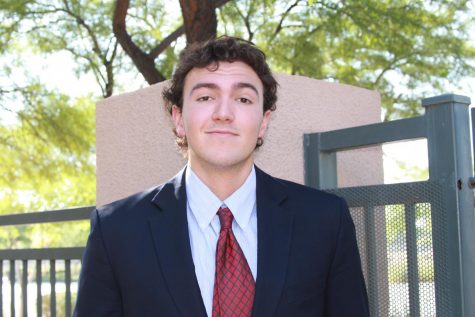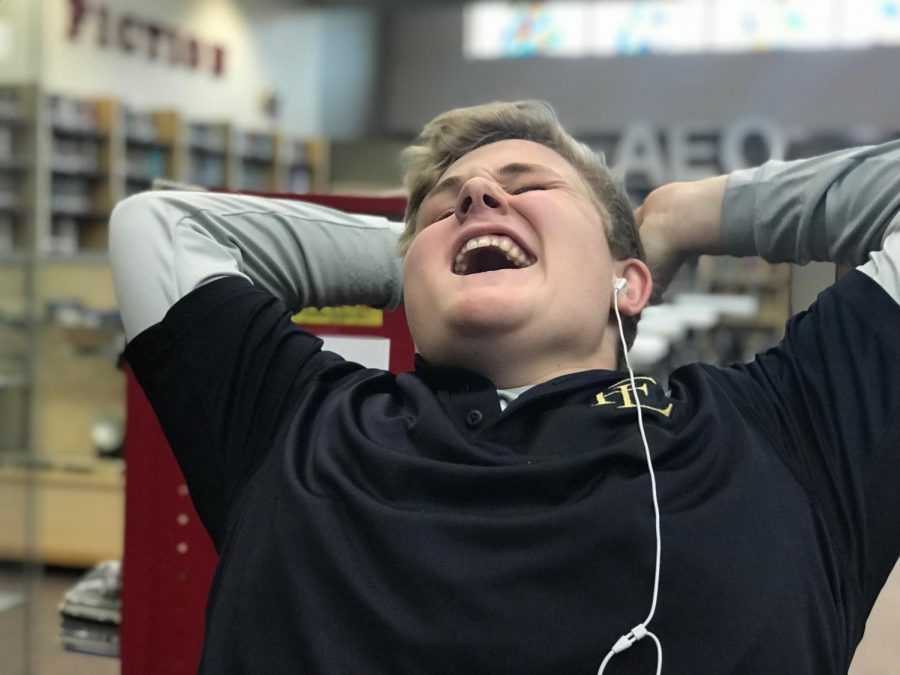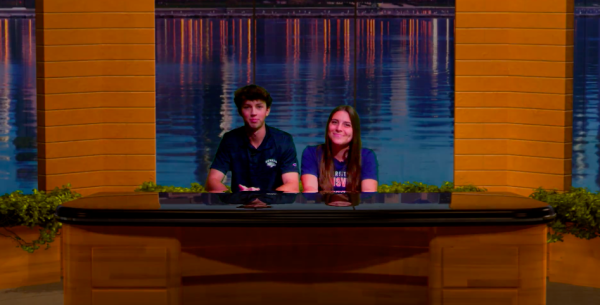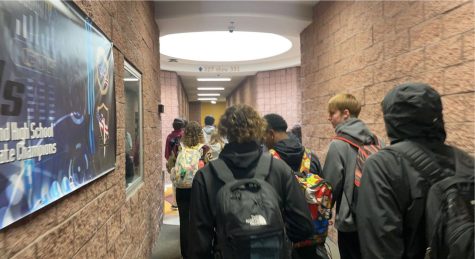The BIG sleep
Sleep. It’s something that we all know we need, just like exercise, proper nutrition, and hydration, but at Faith it arguably suffers the most among those basic health necessities (particularly with high school students). According to a recent survey done by the Yearbook staff, 75 percent of students at Faith get less than 8 hours of sleep a night, and 32 percent of students (the highest percentage among all students in the survey) get 6 hours of sleep, which if prolonged for 2 weeks or more, will have the same effect on the mind as being awake for 2 days straight. 60 percent of students from the survey feel tired at school due to their general lack of sleep, and the most common reason for students lacking sleep, in their opinion, are due to the amount of homework they receive (40.1 percent) with staying up late (17.7 percent), procrastination (12.4 percent), and sports (11 percent). With students such as Lucas Richardson and Micah Fogo (both near the top of the junior class in GPA ranking) whom like many others are involved in rigorous classes and plenty of extracurricular activities, getting 8 hours of sleep is a rare luxury, with 3-6 hours of sleep being the norm.
“There aren’t any possible changes that could be made by the school” said Richardson.
It appears that at the moment most Faith students as of now are stuck in a never-ending cycle of constant sleep deprivation until school gets out.
Sleep deprivation has awful affects on people from any age, but for adolescents it has the worst affect. From 2007-2013, the CDC (Centers for Disease Control and Prevention) observed the negative affects of sleep loss among high school students, and they concluded that those who got less than 8-10 hours of sleep had an increased chance of getting in a car crash, suffering a sports injury, or turning towards drugs and alcohol. Furthermore, students with 9 hours of sleep or less have a higher chance of depression, and that increases if students get less than 4 hours of sleep.
Even the most organized students fail to get enough sleep due to a variety of reasons, such as late extracurricular practices and performances that in some cases don’t end until after 9 at night on schooldays. They finally arrive home after being gone all day long, and instead of going straight to sleep, some have to do homework instead. This is even more brutal for students like myself who live farther away from Faith (my average commute to school can take around 25-40 minutes depending on traffic). Even on a night with limited things to do, it would be difficult for a high school student to fall asleep earlier, as according to Doctor Mary A. Carskadon in her article Sleep in Adolescents: The Perfect Storm, she details that on average, adolescents’ secretion of melatonin (a hormone made by the pineal gland that helps control your bodies’ natural sleep/wake cycles) occurs at a later time than preteens and adults (around 11 p.m. on average for teenagers). This essentially means that even if a student wanted to go to sleep at an earlier time than this, they could potentially stay awake in bed for hours before they fell asleep, only to wake up in a few hours to go to school and suffer from this lack of sleep over and over again.
But how can we as a school fix this problem? A reduction of homework is unrealistic to ask for, and students certainly shouldn’t have to give up their passions outside of school just to get a proper amount of sleep and maintain that consistently throughout the entire week.
What I believe, as well as several organizations such as the American Medical Association, American Sleep Association, Centers for Disease Control and Prevention, National Sleep Foundation and more, is that the start time for students in high school should be pushed back to 8:40 (at least). This would not only allow students to get more and overall higher quality sleep, but, as a result, would allow for students to be more alert, feel better, create more consistent sleep schedules, and in general help their overall health. However, some obstacles stand in the way, predominantly the issues of what would happen to advisory and what would happen with the start times for Middle School. Advisory, while it is nice and fun, and occasionally helpful in terms of doing homework or studying, is not an essential part of the school day, and would not be missed at all by students if replaced by later start times. Secondly, middle school start times would also have to be adjusted, but that would only require for them to adjust their schedule to a “late start time” as well. I believe doing this would drastically help students improve on their performance in out of the classroom, and help reaffirm that the administration puts its students first. I would love for them to seriously consider my point backed by science and professionals in the field, and I am certainly willing to discuss this issue with them. So will Faith fix its sleep problem? We will see soon enough.

Marcello Blanco is a senior who has attended Faith since 6th grade, and has been a part of News Broadcasting since 8th grade. He is the sports editor for...













